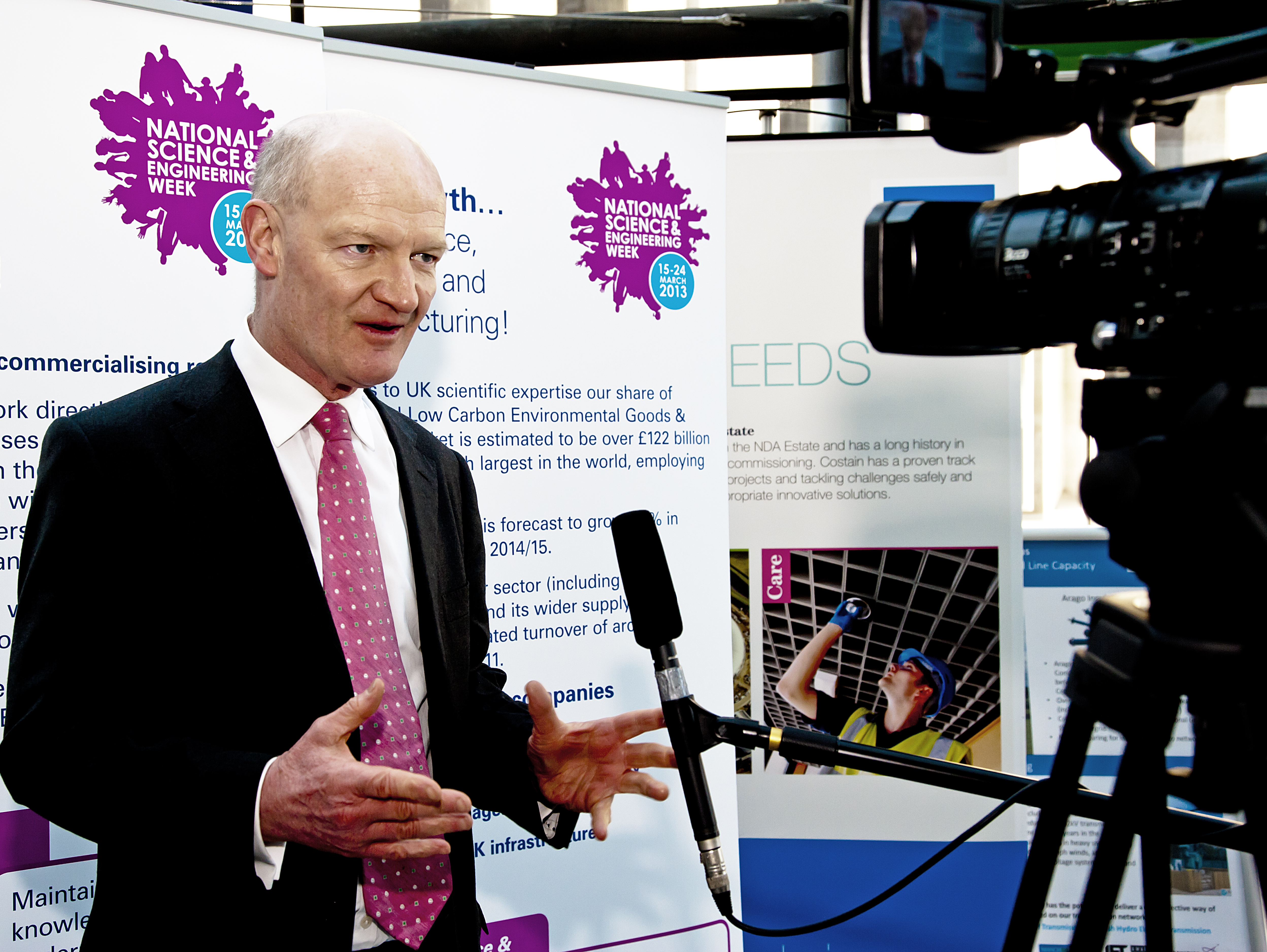
It’s fair to say that when Universities Minister David Willetts made his latest trip to UCL, he had a pretty shitty day. Having turned up to give a lecture on ‘New Opportunities in Science Capital’ (which sounds rather like a PFI sales pitch), Willetts found himself facing a particularly damp rabble of students on their way from a May Day carnival. The lecture was disrupted by some students who found their way inside, but the real action started when Willetts got in his car to leave. As students blocked the road, riot vans and dozens of police armed with tazers showed up to clear the way.
We all know David Willetts as the man behind £9,000 tuition fees, the HE white paper and the back-door privatization of universities, but did you know about his views on grammar schools, that he’s very poor, or that he actually has two brains? Here are 8 things you should know about the universities minister:
1. He cut his teeth in the Thatcher administration.
When Thatcher’s right hand man was still earning his stripes as Financial Secretary to the Treasury, Nigel Lawson had under his wing a young David Willetts. In 1982 Willetts was heading up the Treasury’s monetary policy, before going on to the Number 10 Policy Unit just two years later where at the tender age of 28 he was providing strategy to the Iron Lady herself.
2. He’s against Gove on grammar schools.
Whereas Michael Gove recently refused to rule out the expansion of grammar schools contra long-standing governmental policy, Willetts has long been an opponent of the proliferation of grammar schools, which has earned him a number of right-wing critics. In his widely-reported 2007 speech to the CBI, Willetts said grammar schools were outdated and entrenched middle class social advantage, noting that only 2% of grammar school pupils were on free school meals.
3. He says feminism is to blame for poor social mobility.
According to Willetts, when women who might otherwise have been housewives headed into university and the workplace, “feminism trumped egalitarianism” and working class men were sold out. Not only does this uphold a myth that feminism is somehow ‘unfair’, but it also ignores that facts that there has never been egalitarianism where the working class is concerned and that working class communities have historically had far more women (and children) at work than the middle class.
4. He’s actually very poor.
Compared to his government peers anyway. Imagine how Willetts must feel looking at his paltry £1.9m, while Dave sits on his £3.8m, Ozzy rolls in his £4.5m and Hammy smokes red notes from his £8.2m fortune. In government terms poor Willetts is practically destitute, his measly lot matching the £1.9m pittance Ed Miliband is scraping by on.
5. He was strongly in favour of selling off the forests.
Having played a role in the selling off of the family silver during Thatcher’s reign of terror – whose victims included British Steel, North Sea oil and British Gas – it should be no surprise that Willetts has been foremost among privatization advocates in the coalition. In particular, he was strongly in favour of the sale of the Public Forest Estate even after 225,000 had signed a petition against the sell-off.
6. He has two brains.
According to his admirers, that is. Willetts is known within governmental circles for his analytical approach and maintains many links to academia, such as being a visiting professor at Cass Business School and visiting fellow at Nuffield College, Oxford, as well as being the author of numerous books. Nothing to do with his “stratospheric hairline” then.
7. The privatization of science research has been his shtick for a long time.
The UCL talk was the latest in a long line of discussions relating to bringing ‘international providers’ (read ‘transnational companies’) into the science research being done in UK universities in order to boost funding to the sciences without the government having to spend its own cash. “Globalization is still in its early stages when it comes to Higher Education,” said Willetts in 2012. It’s probably for the best then that despite the rhetoric Willetts’ department was ill-prepared in surveying potential profiteers, as Andrew McGettigan noted at the time.
8. As has the privatization of Higher Education in general.
Unlike many ministerial appointments, David Willetts was not assigned the post of Universities and Science out of favour or social standing. Willetts has long been an advocate of opening up a Higher Education gold mine for for-profit providers to capitalize on HE and recruit from the custom-built graduate pool, publishing and speaking on the subject way before his days in government. The shelving of the legislative manifestation of this ambition – the HE White Paper – was positive, but such a hiccup will not deter Willetts in the slightest, and it is back-door privatization through corporate ‘partnerships’ and outsourcing that we should now be on-guard for.